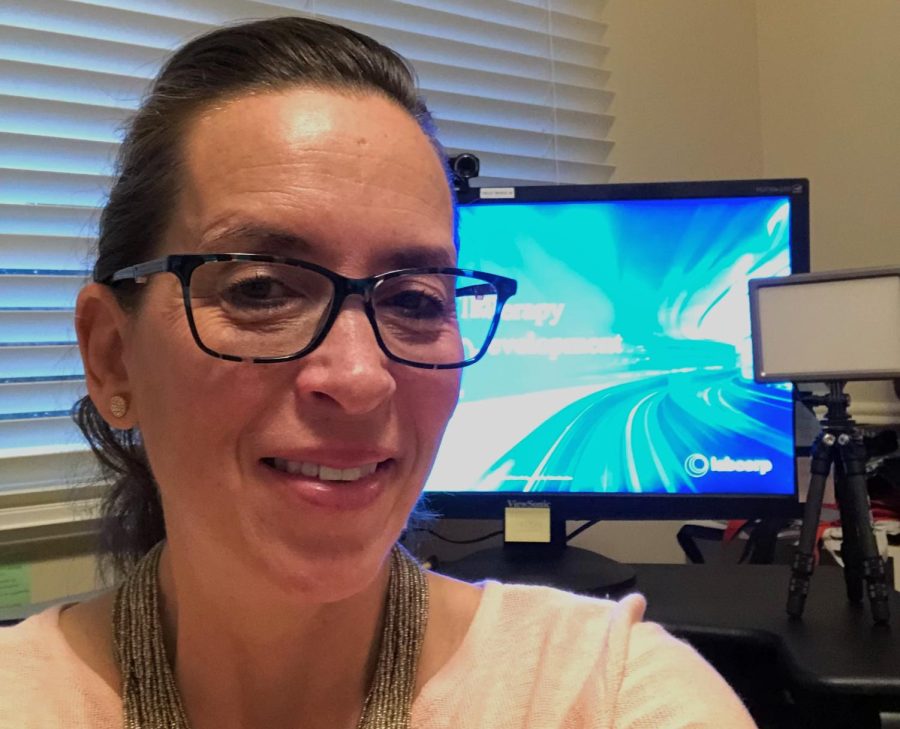Women in Life Sciences
Maryland Franklin was interested in science at a young age, but when she saw her own stained chromosomes under a microscope in one of her college courses, she was hooked.
“Beginning college was so exciting because you could start digging into an area that you were interested in,” Franklin said. “I just had no idea about all the ways I could apply my interest in science, it was eye opening.”
Even though college was an exciting time for Franklin, she did find it hard at times to be a woman in science. She remembers times where men would blatantly ignore her, speak over her or take her ideas and claim them as their own.
“As a woman, it’s hard to find your voice sometimes because men can be much more confident in an environment where they are the majority,” Franklin said. “They have that sense of freedom or the privilege to be able to say something even if they don’t have the credibility behind them.”
During graduate school, Franklin was a part of a conference, which was out of town. She remembers going out to eat dinner with the other students who had been invited.
“I was looking around the table and I realized as we sat down, there’s me and then 13 other men,” Franklin said.
Franklin found that the amount of men and women that were in her classes depended on the type of course. In Franklin’s chemistry classes, there were by far more men than women, but in her psychology classes there were more women involved.
“When I was in school, there were certain gender stereotypes that were very prevalent, women went into education and nursing and then men went into business, science and math,” Franklin said. “I think companies have started recognizing that the more diversity there is in a workplace, the more productive a company is.”
Franklin has realized that gender diversity is an immense part of the change. Many companies are adding in all kinds of diversity and people from all different backgrounds, with hope to achieve more success in the company.
Though there have been efforts to add to the diversity in companies, gender diversity through the different ranking of positions is still not enough to be considered equal.
“If you look at the more entry level positions, you find that there’s more women than men and as you move further up in positions it becomes more equal, but as you look at the more senior positions, you see that there are so few women in those higher positions,” Franklin said.
Franklin now works as the Vice President of Cell and Gene Therapy for a company that works with a variety of other companies to plan and develop different drugs. Franklin’s role as a scientist is to help understand the science behind what the product is being developed into, figure out what the services are and how to bring those two sides together.
“I think I have found the profession that makes me really excited every single day,” Franklin said.
Even though working in life sciences brings much joy to Franklin, it doesn’t make it any easier to be a woman in a male-dominated field. Franklin has experienced a number of times where male colleagues have said an off color joke or comment to her or about another woman.
“It usually includes some sort of curse word or derogatory term towards women, but I get them a lot,” Franklin said. “If not everyone can be included in the joke, it’s just not funny or needed.”
In the past years, Franklin has noticed that women have started recognizing that these off color comments are inappropriate and they have started changing the way they put up with them.
“Women have started to bring charges against them and the men eventually lose their jobs,” Franklin said. “I know two people this has happened to and you know what, times are changing and that’s a good thing.”
There have been a lot of efforts to bring more women into science. Franklin has seen that change happening within the company she works. The change in gender diversity amongst leadership programs is something that Franklin finds inspiring and she hopes will give lots of women the motivation to push themselves.
“Women are going to make a difference in this industry by pushing against those boundaries that other people set for you, I want to make my own boundaries,” Franklin said. “If somebody tells me no, that is all I need to motivate me to continue, to prove them wrong.”




